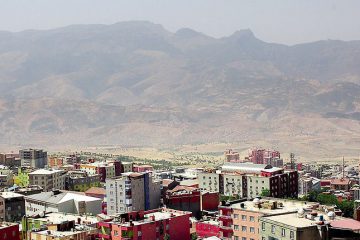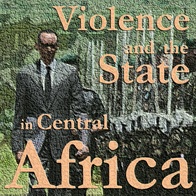
As IS territorial dominance diminishes, what challenges lie ahead for Iraq’s Kurds?
On the ninth of June, Haider al-Abadi, the Iraqi Prime Minister, arrived in Mosul to congratulate the armed forces for the liberation of the city. Mosul had been conquered by the so-called Islamic State in Iraq and Syria (ISIS) in 2014 and served as its Iraqi capital. This significant victory is not yet the end of ISIS in Iraq, however, both in Iraq and in Syria its territorial dominance has strongly diminished—by about 60 % since January 2015—and is likely to continue. The power vacuum emerging from this rapid decline has heated up competition between the numerous parties in the conflict—regular forces of regional states and great powers, as well as various militias often acting as their proxies—to control former …

Paying your soldiers and building the state in post-genocide Rwanda
Ensuring soldiers have legal access to financial resources is crucial for the state to fulfil its primary mission: retain the monopoly of violence. As seen in the Democratic Republic of Congo, difficulties providing soldiers with adequate resources may result in deteriorating discipline, corruption, defection, and human rights abuses.
Rwanda after the genocide faced the difficult task of paying its soldiers. The post-1994 situation made this challenge inescapable. The Rwandan Patriotic Front (RPF) took power in a ruined country. The economy was entirely destroyed, and fleeing officials of the previous regime had emptied state coffers. The resources to pay soldiers were virtually non-existent. In addition, following the RPF victory, many families returned from exile to Rwanda. Consequently, soldiers of the Rwandan Patriotic Army (RPA, the armed wing of the RPF) were not just guerrilla fighters anymore: they became fathers, husbands, or brothers again. This new financial burden on soldiers’ shoulders created a form of indiscipline largely unknown until then in the RPA’s ranks. In addition, the meagre salaries were made in cash, transported by intermediaries from the Ministry of Defence to soldiers, which multiplied the opportunities for embezzlement and the creation of ‘ghost soldiers’. Worse, the opportunities for soldiers to borrow money were extremely limited at the time. Many had no property in Rwanda and consequently no collateral to offer to the few banks still functioning.

Exit strategies and state building: an interview with Richard Caplan
Professor Richard Caplan, of the DPIR, Oxford, and editor of the new book Exit Strategies and State Building, talks to Politics in Spires about the book itself, the practice of internationally-led state-building and strategies for exit. In this interview, Professor Caplan talks about the practical and normative changes that have taken place in the international arena which this book has responded to and deals with some of the most pertinent issues faced by the international community when attempting to undertake state-building projects.









